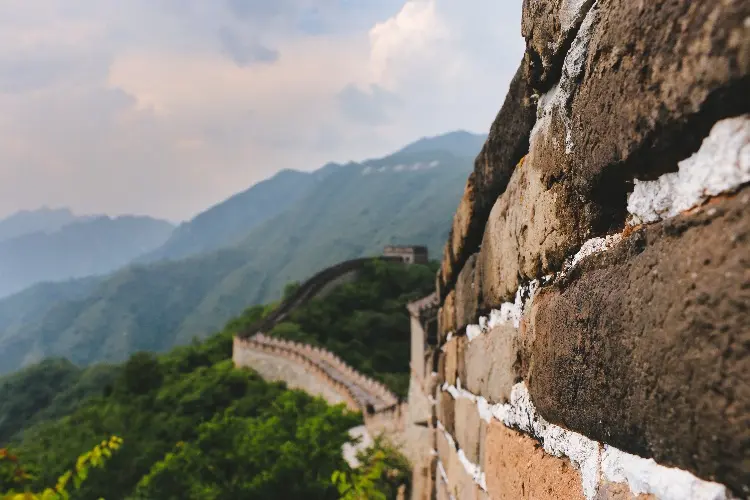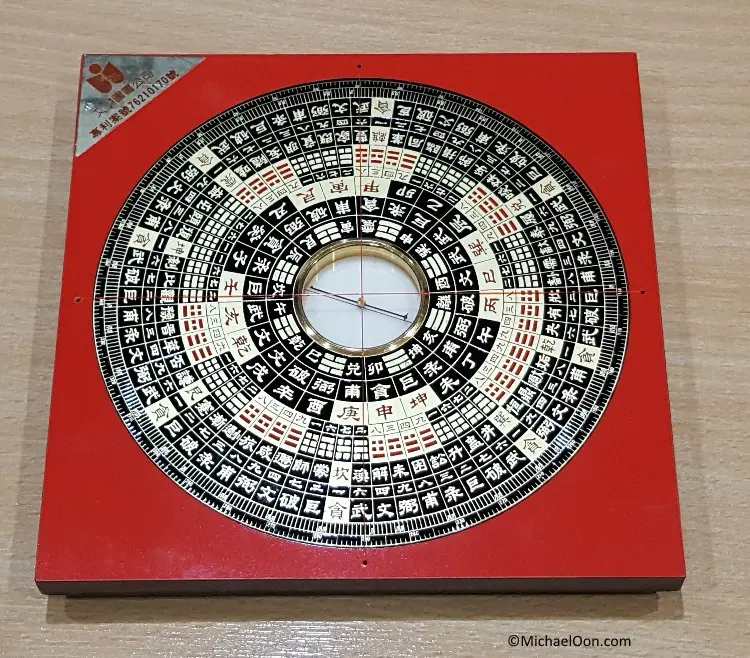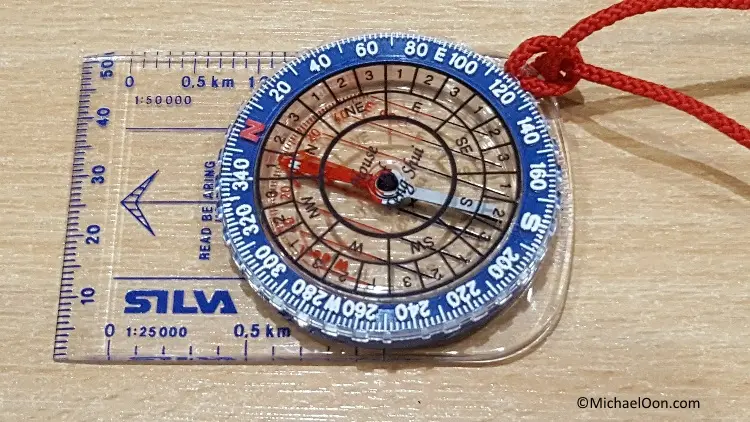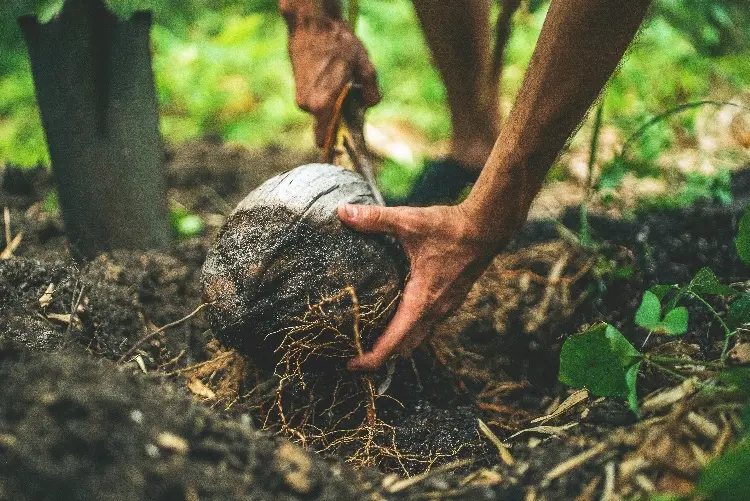What is Feng Shui? (The Definitive 18 FAQs)
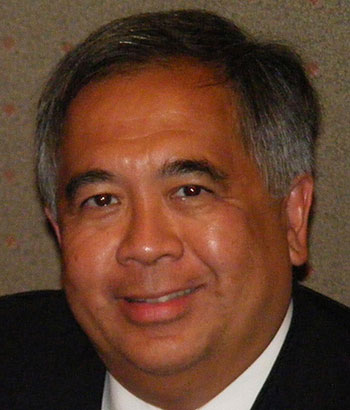
Dr. Michael Oon
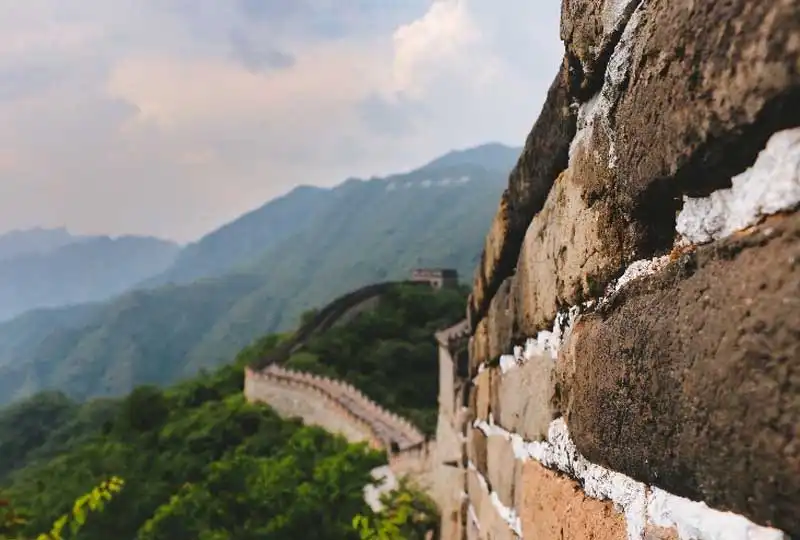
Feng Shui is a very difficult term to explain.
In Chinese, it means Feng (Wind) and Shui (Water). So, what has this got to do with improving your well-being? This term is a nickname from the old term Kan Yu – meaning management of the Land, your Environment or your Space. Nicknames are common in the Chinese Language.
Hence – A Short description: Feng Shui is the Chinese system of management of the Environment.
This post lists the answers to 18 frequently asked questions that have been asked but have not had satisfactory answers.
Contents
02 What is the Modern Day Purpose of Feng Shui?
03 What was the Original Purpose of Feng Shui?
04 Why is there No Equivalent of Feng Shui in the West?
05 What is Traditional Feng Shui?
06 How is Feng Shui Justifiable?
07 What are the Basics of Feng Shui?
08 Is there Any Scientific Basis to Feng Shui?
09 What is a Feng Shui Compass?
10 Is Feng Shui Religious, Spiritual, Magic, a Ritual or a Form of Superstition?
11 Why Use A Professional Feng Shui Consultant? Sub Question: How Do You Feng Shui Your Home?
12 My App states that my house is 1 Star Feng Shui. It can help me to get 5 Star. Is this Credible?
13 What is Contemporary Feng Shui?
14 Who is The Best Feng Shui Consultant?
15 The Single Most Effective Tip for Feng Shui that you would Recommend.
16 Is there an Alternative to Feng Shui?
-
What is Feng Shui?
Feng Shui is the practice of planning and design using the forces of Energy (also called Qi) that surround us in the environment.
In nature, Energy is directed, collected, contained and dissipated by forms such as mountains, valleys, and bodies of water.
In a city, buildings, roads, landscaping and other man-made constructions influence the flow of Energy.
Within a building, Feng Shui is represented by interior forms such as corridors, rooms and furnishings. (From Alliance Feng Shui)
Commentary: This knowledge has been accumulated by the Chinese over centuries since the start of their civilisation some 4,000 years ago. This has evolved over the ages and kept pace with modern times.
The central tenet of Feng Shui is the flow of Energy in the Environment. The key to successful Feng Shui is for the city or property to accumulate this Energy with the minimum of loss.
Feng Shui can be a very effective tool in helping people create harmonious working and living environments. This can also bring about other changes for the better as a consequence. It helps develop wealth, health and happiness. Feng Shui is not magic, neither spiritual nor religious. It is the understanding of the movement of Energy on the surface of the Earth.
-
What is the Modern Day Purpose of Feng Shui?
It is easier to refer to the business sector as the results are out in the public domain.
- Minimise risk as the business wants certainty.
For example, you want the results but minimise risk.
Gaming or gambling companies do not want to lose money. Or they cannot afford to lose. They mitigate their risk by having Feng Shui done on their offices and their sites. Most of the hotels in Las Vegas have had Feng Shui work done. Many of the UK Gaming Companies have a Feng Shui element in their offices.
2. To maximise returns or gain a competitive advantage.
The Hong Kong and Shanghai Banking Corporation (HSBC) then based in Hong Kong, was just another regional bank in the Far East. In 1980s, it had global ambitions. It built a Head Office in Hong Kong to succeed. It is now, one of the major banks in the world with the head offices in Canary Wharf, London.
In the 1990s, Tesco had an aggressive strategy to become the leading supermarket in the UK. They had their new offices and superstores designed with Feng Shui. Their market share increased from 15 to 31% of the UK market.
In the 1970s, Walmart was a regional supermarket in the South of the USA. In the 1980s, they had ambitions to be the leader in the Grocery sector. Their HQ and various stores were designed with Feng Shui. Walmart is now a behemoth in US Grocery Retailing, with its headquarters in Bentonville, Arkansas, USA.
-
What was the Original Purpose of Feng Shui?
Feng Shui is the accumulated knowledge of the Chinese Civilisation which started some 4,000 years ago. They started to live in dwellings on the land and their main concern was survival. The main considerations were security (from predators and other tribes), safety from nature, how to grow the crops, sources of water and methods to get rid of waste. The Chinese documented their observations so that they would not repeat any mistakes and also, find ways to improve the environment for the better well-being of the people.
This wealth of knowledge developed over the centuries. The Chinese Emperors used it to help them rule over the centuries. Feng Shui was used in the design of the infrastructure which was important for the prosperity of the people. A version of Feng Shui (QiMen DunJia) helped them gain victories in battles.
-
Why is there No Equivalent of Feng Shui in the West?
I had a number of conversations with farmers in the UK. They believe there is a history of land management that goes back centuries. This system is very much like the Chinese – where to have a safe dwelling, where the best arable farmland is, where to get water and place the waste. This was not documented as not many people could read or write. One farmer speculated that this was because of the influence of the Church. Those who could write were from the Church were more concerned with spiritual matters.
The nearest Western equivalent to Feng Shui is Terroir. This is the set of Environmental factors that affect the growth of the vine and the taste of the grapes for the wine.
Commentary: Based on logic, when man settled to become farmers, many thousand years ago, they must have developed a set of rules to have safe communities. This knowledge must have been handed down from generation to generation by word of mouth. The knowledge would have been lost as it is not written. Chinese civilization was more advanced to the West until the 19th Century. Documentation was common in China. The Chinese Emperor started to use Feng Shui to enhance his powers. Feng Shui then developed to become a sophisticated subject as it is today as part of the Five Arts.
-
What is Traditional Feng Shui?
Traditional Feng Shui is the original knowledge passed down from master to disciple with strong roots dating back to the Tang Dynasty (618-907 AD). Ancient methods have been adapted, tested and proven for effective use in the 21st century.
Commentary:
With Traditional Feng Shui, it is the tradition of the Master to pass down the knowledge to the disciple. The handing down of the Master’s practice skills is on a one-to-one basis; from one generation to the next. The Master has been using the practise skills that have been proven and established not only from his time but also from his lineage Masters.
The Master then mentors his disciples through an apprenticeship to a fully trained consultant. This process can take hundreds of hours of the Master’s time lasting 10 years or more. The Master only allows the disciple to practise using the Master’s name after he is confident of doing the job well.
This is very different to the contemporary Feng Shui teaching which is classroom based. I was a Forensic Scientist at the Metropolitan Police (New Scotland Yard). I was trained in Court going forensic scientist by trainers who had decades of experience. They taught you proven and reliable methods that had been developed from the Laboratory’s history.
There are University degree courses in Forensic Science. The syllabus taught by the teachers who have based their knowledge from books or worked previously in Forensic Science Laboratories. The graduates do not practise Forensic Science when they complete the course.
Being taught and being trained are 2 very different things.
-
How is Feng Shui Justifiable?
Feng Shui is justifiable for the results that can be achieved.
- Singapore, soon after independence in 1965, a Buddhist Monk - Venerable Hong Choon, worked on the Feng Shui of the city. Singapore is now one of the most prosperous countries per capita in the world.
He also designed the route of the Underground system in the 1980s. He is particularly noted for reviving the fortunes of a Hyatt Hotel in Singapore.
In London, Canary Wharf is the 2nd Financial Centre of London. More than 100,000 people work in this prosperous centre. It was designed with Feng Shui from the planning stages. Link to Canary Wharf, London.
- Costco, the American Wholesaler has its stores designed with Feng Shui.
2. Starbucks has located their coffee shops primarily at street corners. In some US cities, there 2 or more in a single street junction or intersection. Similarly, coffee shops in Malaysia and Singapore are also situated there. The Feng Shui Energy is ideal for coffee shops.
-
What are the Basics of Feng Shui?
There are three necessary elements – People, Buildings and Energy in the Environment.
Then there are 2 more concepts on top of this Energy.
- Ying and Yang. This is the concept of duality. The world is not about extremes. It is a balance of Ying and Yang.
- The Five Elements. The 5 elements being water, wood, fire, earth, metal. The elements are inter-related by their productive, reductive and destructive cycles.
The aim in Feng Shui is to identify the Energy flow in the Environment and direct it to the property. The more Energy there is, the better the outcomes for the people in the property.
The Energy has certain properties – the quality of the Energy changes with time and compass direction. Its flow is determined by the landscape surrounding the property. Likewise, with the better the quality of the Energy, the better the outcome for the people.
-
Is there Any Scientific Basis to Feng Shui?
When you state “Scientific Basis”, I assume western science. Feng Shui is not science-based in on the tenets of western science.
Chinese Metaphysics like TCM (traditional Chinese medicine), Chinese acupuncture and acupressure are accepted in Western society today. They are reproducible which give the stated and beneficial result but, it is not based on Western science. In other words, it works. If it did not, people will not be going back again. It would be left by the wayside. This is an example of evidence-based results.
This is the same with Feng Shui. There is no basis in Western Science but it is used by many Corporates, small businesses and households in the West.
-
What is a Feng Shui Compass?
A Feng Shui compass is known as the Luo Pan. It comprises of 2 parts:
- The compass in the centre of a rotatable plate.
- A plate has a “cheat sheet” or formulae laid out in a circular format around the compass.
It certainly looks impressive, but it can be heavy to carry over a long period of time. To use it properly, you to be shown by a teacher to hold it, align it with the object you are measuring against. After the measurement, you are looking at the formulae in the circles for the analysis.
I prefer to use a proper western compass with a print overlay of the main 8 directions and the 24 mountains.
The diameter of the compass component of the Luo Pan is 3.0 cm. The western compass is larger at 3.5cm. The main difference is the western compass needle movement is dampened so the needle movement is more stable and easier to read. It is also small, convenient and unobtrusive.
-
Is Feng Shui Religious, Spiritual, Magic, a Ritual or a Form of Superstition?
Feng Shui is about the flow of Energy in the Environment and people within the building. It is the understanding of nature.
It is a logical process.
It is not a religion as you do not need to have faith to believe in Feng Shui.
It is not spirituality as there is no connection with something that is bigger than us.
It is not a form of superstition as there is no relation to the supernatural.
It is not magic where mysterious tricks are carried out.
It does not involve ritual where you have to perform a series of actions for a solemn ceremony.
-
Why Use A Professional Feng Shui Consultant? Sub Question: How Do You Feng Shui Your Home?
There is a lot of information on Feng Shui and I will just raise 4 points.
- In this modern age, with information in books and on the internet, is to find out what information is relevant. How are you going to sift this information?
- Books and Tips on the internet are generalised information. What you need is personalised or relevant information.
- There is a lot of contradictory information. Which side do you take?
- Once you have solved the above points, how are you going to sort out the priority of this information?
A Professional Feng Shui consultant:
The consultant would have gone through a period of training and have understood the fundamentals of Feng Shui. The training of the consultants is varied, some with a short training period and some as long as 10 years. Not only that, the approach to the subject is different, however, there is a line of commonality.
-
-
- The main aim of the consultant is to analyse the 3 main elements - the person(s), property and the Energy. Every person is different. Every property is different, even though they might be adjacent and have the same architectural design. This affects the flow and type of Energy.
- To identify the flow of Energy to the property and distribution within the property.
- Sort out the priorities from the analysis and make relevant recommendations.
- Feng Shui is holistic. The consultant has to consider both the external and the internal aspects of the property. It is not possible to just do the Feng Shui of a room and get satisfactory and long-term results.
-
-
-
-
My App states that my house is 1 Star Feng Shui. It can help me to get 5 Star. Is this Credible?
-
-
I have looked at the App. It uses the 8 House Feng Shui Formula. This formula states the best directions for the person (Wealth, Family, Health and Spiritual aspects). These directions are unique to the person and are based on the person’s date of birth.
The application of Feng Shui is not about one particular formula, but it is holistic - the whole environment that the person is living in. This includes the Energy coming, its distribution and how it leaks away from the house as well as the compass directions. Also considered are the structure and the design of the house.
This App only considers at one aspect and does not give the whole complete picture.
Like so many things in life, it is your choice.
Feng Shui is about the getting the benefit from its application and not only about the technicality of applying one or more formulae.
-
-
-
What is Contemporary Feng Shui?
-
-
Feng Shui has a long history. It goes back about 4,000 years. So, how do you define contemporary? I will take the 20th Century as contemporary.
There is one Feng Shui formula which is based on the work of a Black Hat Sect Buddhist Monk called Lin Yun. It is known as the Triple Gate formula. It is derived from the Bagua, but without the compass directions.
There have been quite a few changes in the modern-day world. For example, electricity, roads, high rise buildings etc. Feng Shui easily takes into account of these changes when the interpretation is based on the flow of Energy.
There are a host of new topics which include de-cluttering, cleansing the space, minimising electromagnetic forces, dowsing to identify geopathic stress. These topics are not part of Traditional Feng Shui.
-
-
-
Who is The Best Feng Shui Consultant?
-
-
This is a very difficult question to answer. There are very many elite Feng Shui consultants that work around the world and have very low profiles. I have heard of teams originally based in Taiwan but now in the US and Europe. There must be teams of consultants in the Far East, including mainland China and Taiwan. There are Feng Shui consultants based in Las Vegas. Therefore, it is impossible for me to give a valid opinion.
One Feng Shui consultant who did the Feng Shui of the Singapore which is now an extremely prosperous country is Venerable Hong Choon. After independence, he helped design the layout of the City and also, the underground metro system. Sadly, he passed away in 1990.
-
-
-
The Single Most Effective Tip for Feng Shui that you would Recommend.
-
-
Feng Shui is about the flow of Energy. Within the property, any building – office, shops and homes the Energy has to flow easily. The Energy should not be hindered or obstructed for this flow. Therefore, the tip is to clear and tidy the place. Yes, the modern term for this is called Decluttering.
-
-
-
Is there an Alternative to Feng Shui?
-
-
Vastu Shastra is a traditional Hindu system of architecture. This translates to “science of architecture”.
I am sure there are other architectural or land management systems but they have not been documented.
The nearest land management system I could find in the West is called Terroir. This is the set of all the environmental factors that affect the crop. This is the basis of the French wine Appellation D'Origine Contrôlée system, which is a model for wine appellation and regulation in France and around the world.
-
-
-
I find studying Feng Shui very Frustrating. I want to know whether I have made the correct interpretation.
-
-
Feng Shui is intangible. Therefore, getting direct “feedback” is very difficult.
In my early days, I read many books and worked to understand the formulae. I tried to apply them in shops or cafés. I could not. So, I got teachers to help me attempt to work out the Feng Shui of restaurants where I knew the owner. The owner also helped us with business information of the other restaurants on the street.
To me, as a forensic scientist, I need feedback to know whether I am on the right track or not. I cannot allow myself to make a mistake in the analysis and interpretation. So, I continued my search for tangibility.
I then recalled the manner how the Chinese passed the Feng Shui knowledge from one generation to the next. They were in lineage societies. I managed to get invited to join a society and to embark on a training programme. I was constantly reminded that the main driving force in Feng Shui is Energy. Once you can visualise the flow of Energy or understand the characteristics of the flow, Feng Shui becomes tangible. You start to understand whether a building is receiving, not getting or leaking Energy immediately. The remedies can be suggested straight away and solves the problem effectively. It works and there are no dramas.
Formulae are methods that represent the Energy flows in the property. This is an indirect method and is not tangible.
Knowing how the Energy flows, Feng Shui becomes a dynamic subject – smooth flow to turbulent, reflected and bouncing etc. It is not a subject where you recite the formula as if you were in school.
-
-
-
Is it possible to convert any Shop to a Prosperous Shop using the Services of a Feng Shui Consultant?
-
-
It is not impossible, but it can be achieved on occasions. It depends on many variables.
-
-
- The main criteria is there any Energy coming to the property?
- Is the landform suitable to hold or retain the Energy?
- Do you have the budget to make the necessary changes?
- Feng Shui helps to create prosperity. You need the right product together with the right marketing mix and hard work.
-
Feng Shui is not a Silver Bullet that solves all problems. It is one of the tools to get success.
The answer to Supplementary Question:
Canary Wharf was designed with Feng Shui from the start or the initial concept. It is not only London’s 2nd financial centre, it is a retail complex with shops and restaurants and a major transportation hub in East London as part of the London Transport System.
If the site had been designed using the current Western concept of “River Front Views”, it would have been a series of Tower Blocks along the river. Instead, Canary Wharf is designed along a Boulevard which is at right angles to the river. With this design concept, the property developers are able to add in more tower blocks (meaning more office space) and these building would be sharing the Energy from the River Bend to make this development even more successful.
Is Canary Wharf successful from the Property Developers point of view? Canary Wharf has more than 100,000 people working here. It has the headquarters to major World Businesses like Barclays Bank, HSBC and European head offices to Citigroup, Credit Suisse, Fitch Ratings, JP Morgan, KPMG, Morgan Stanley and more.
More information on this site is in another post (Link to Canary Wharf, London.)
Feng Shui
So that’s it for my guide to Feng Shui.
I hope you enjoyed it.
Other Blog Posts
Feng Shui Bedroom Review (50 Tips for Even Better Sleep)
Feng Shui Love (The Best 50 Tips to Boost Your Love Life)
Feng Shui of London (The Secret of 8 Highly Productive Areas)
Feng Shui Buildings in London (9 Surprisingly Successful Buildings)


